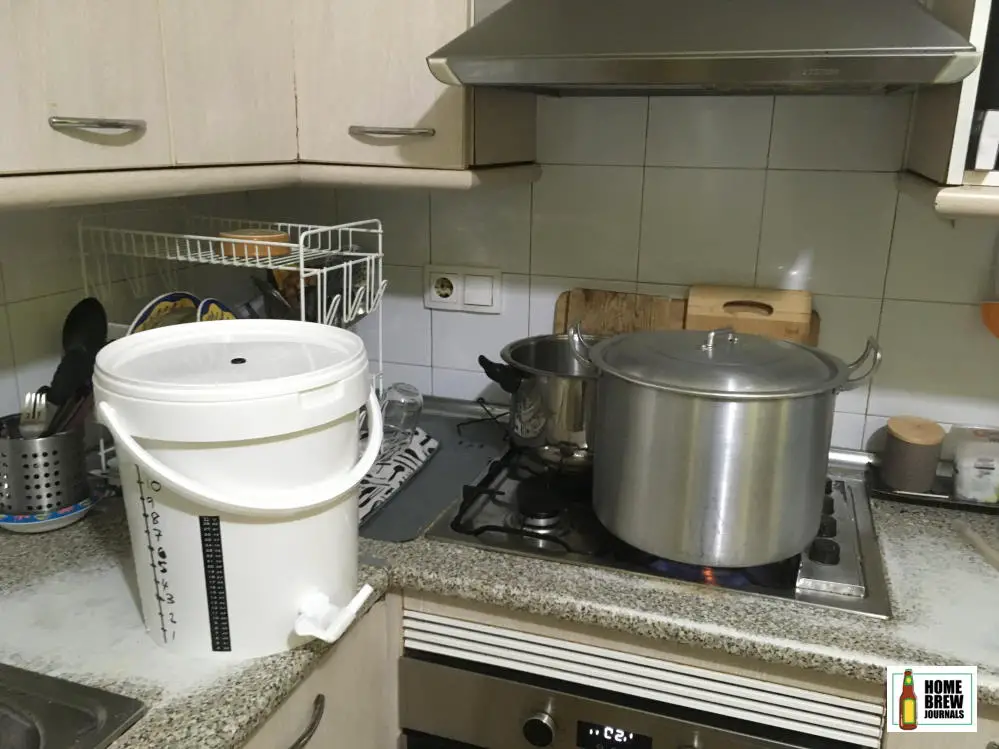One of life’s little pleasures is unwinding at the end of the day with a cold beer or a glass of your favorite wine, but is it legal to brew beer at home in the USA?
It’s legal to brew your own beer at home in all 50 states, but some local regulations may limit the quantity you can make and whether you are allowed to distribute it.
In this post, we are going to be exploring the USA laws and regulations surrounding homebrewing and what this means for you.

Is it legal to brew beer at home?
Many people are unsure as to the laws surrounding making your own alcoholic beverages at home, and until recent years, it may not have been legal at all. But have things changed?
In the United States, people are legally allowed to brew beer from the comfort of their own home. However, this doesn’t mean to say that you are free to start your own brewery and produce as much beer as you like.
It is also legal to make wine at home, but there are also restrictions on this and when it comes to the strong stuff, forget it. US citizens are not permitted to distill spirits like whiskey at home.
When was homebrewing legalized?
The law around making beer and wine at home has been somewhat hazy over the last 100 years, with frequent changes being made that have left home brewers wondering what they can and can’t do.
This was owing to the laws passed during prohibition, which stated that the manufacture, transportation, and sale of alcohol from home was banned.
In 1919 the prohibition act was passed, and brewing alcohol became illegal. However, the 21st amendment in 1933 saw the laws being repealed. Even after the repeal, since the legalization of homebrewing beer was mistakenly left out, this technically made it illegal. Confused? So were people back then.
Fortunately, the law today is very clear. In 1979 President Jimmy Carter abolished the age-old laws of prohibition and made it entirely legal to brew beer and wine at home, at a federal level.
National and state laws for homebrewing
The national amendment dictates that homebrewing is legal across the country but this does not include the finer details which were left up to the state governments to decide. As such, depending on where you live, the laws on homebrewing may vary widely.
We would need a huge post to detail every state law that pertains to homebrewing beer or wine but let’s take a look at some of those that are a little more unusual.
- In Utah, homebrewing was a point of contention for a long time. The state put forward a resolution to legalize homebrewing, but this remained in the Utah senate for some years before finally being agreed upon in 2009.
- The last two states to legalize homebrewing didn’t do so until 2013 – these states were Alabama and Mississippi.
- Most states have laws set out that dictate the alcohol percentage permitted in a batch of homebrew. For example, in Washington, you are allowed to brew anything with an alcohol volume of up to 14%, but in Oklahoma, you can’t go above 3.2%, and this is only if you have the right permit.
- One of the states with the highest permitted ABV is South Carolina, where you are free to enjoy a bottle of 17.5% homebrew.
- In most states, there is a limit on how much homebrew you can make, and this is normally based on the number of adults residing in the property, but not in Delaware. Here, you can brew up to 200 gallons annually, regardless of whether you live alone or with twenty other adults.
- All state laws dictate that you cannot mail homebrewed beer through the US postal service, although if you wanted to use an independent courier like UPS, that would be acceptable.
How much beer can you legally brew per year?
We have touched on the fact that each state permits its residents to make a certain amount of homebrewed beer each year, but this can differ greatly depending on where you live.
In almost all states, you are allowed to brew 100 gallons of beer at home per adult over the age of 21. But this only applies up to two adults – so the maximum amount you can brew would be 200 gallons.
Fun fact
Despite the legal drinking age being 21, under federal law, anyone who reaches the age of 18 is legally allowed to partake in the brewing process at home, provided that he or she does not drink any of the beer.
Nevertheless, some states do not follow this rule; as we have discovered, Delaware allows 200 gallons even for a single adult household. In contrast, Alabama residents must not brew any more than 60 gallons per year, regardless of the number of adults in the home.
If you live in Connecticut, you can still brew the national 200 gallons for two adults, but if you live alone, you’d better knock that down to 50 gallons.
Texas, Pennsylvania, Oklahoma, and South Dakota all fall into the same category as Delaware and allow a maximum of 200 gallons even for single adult homes.
Can you sell homebrew beer?
If you aren’t a big drinker but are making 200 gallons of homebrew every year, the chances are that you may want to sell this on and earn some cash. But is it legal to sell homebrew in the USA?
In short, it’s not legal to sell homebrew beer in America. Although, you may obtain a permit that would allow you to distribute your beer at craft beer fairs and other such events. But in this case, you would need to be registered as a craft brewing company, so this takes it out of the realm of ‘homebrewing’ and into more of a commercial area.
It’s also important to keep in mind that this will be a very long and likely expensive process, so if you aren’t serious about it, then it is probably best to save your homebrew for parties and nights in with friends.
Do you need a permit to brew beer?
Unless you want to register as a home brewery for business purposes, you do not need a license to brew. There are some exceptions to this rule, such as the permit required in Oklahoma if you wish to brew anything that exceeds an ABV of 3.2%.

Where can you drink homebrew?
Homebrewed beer and wine may only be made for your personal consumption. In other words, you must only drink it on domestic premises.
What isn’t legal in homebrewing?
Aside from the intricacies of each state’s law, there are some other things that are not permitted when it comes to homebrewing. One of the most notable examples is moonshine; it’s not legal anywhere to make moonshine without a permit.
The reason for this is that distilling high-ABV products like spirits can be risky. When you make a bad batch of wine or beer at home, the worst that can happen is you have to throw out the batch and start over.
In contrast, brewing up a bad batch of moonshine could be potentially life-threatening. There are a lot of people who disregard this law and continue to make moonshine. The most dangerous outcomes are a fire due to faulty equipment or physical damage due to consuming methanol.
If you are not experienced in making moonshine, there’s a chance that you might unwittingly end up consuming methanol, whereas someone who knew what they were doing would discard this toxic by-product.
Conclusion
Making alcoholic drinks at home is a fun hobby and can save you money compared to purchasing equivalent quantities of commercially produced products.
Up until around 50 years ago, it was not legal to make your own beer and wine in the United States. President Jimmy Carter overturned this law in 1979.
In most states, the laws on homebrewing are similar to the federal laws, with each state being left to determine the ins and outs of home brewing.
Some states have their own take on the laws, so it is important to check that you are within your brewing limits before you get started.
